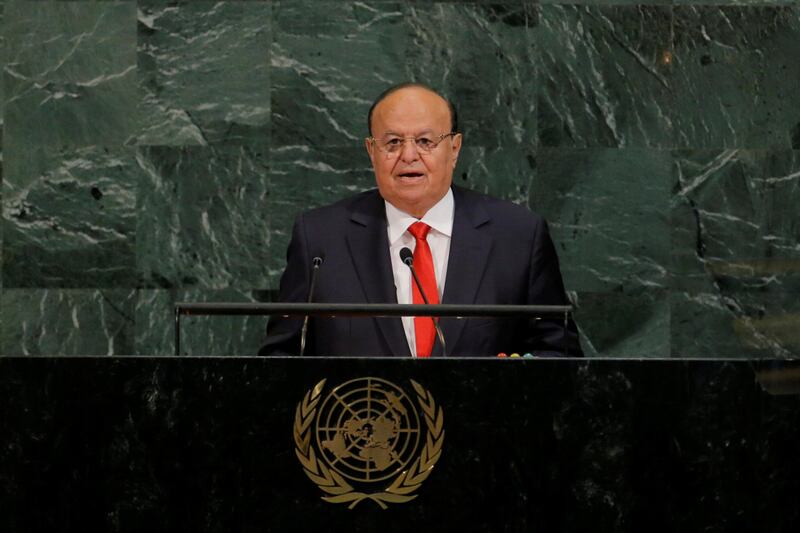The UN special envoy for Yemen Ismail Ould Cheikh Ahmed met Jordan's foreign minister on Thursday to discuss the latest efforts to end the war in the country.
Mr Cheikh Ahmed briefed foreign minister Ayman Safadi on his discussions with regional and international parties, as well as his proposals to activate a political process to resolve more than two years of conflict.
Mr Safadi assured the UN envoy of his country's support for all efforts to reach a political solution to end the war, put an end to the suffering of the Yemeni people and restore security and stability in the country, the Jordan's Petra news agency said.
Jordan is the headquarters of the office of the UN mission for Yemen.
Mr Cheikh Ahmed's talks with Mr Safadi followed a four-day visit to Riyadh where the UN envoy met Yemeni president Abdrabu Mansur Hadi and foreign minister Abdelmalek Al Mekhlafi, as well as Saudi foreign minister Adel Al Jubeir.
In a statement released by his office, Mr Cheikh Ahmed said his efforts to achieve a viable negotiated settlement were "focused on three pillars: the resumption of the cessation of hostilities, some specific confidence-building measures that can alleviate the humanitarian suffering and the return to the negotiation table in order to reach a comprehensive peace agreement".
"This is at heart a political conflict so it can only be solved with political negotiations. We remain committed to working with all parties to create the conditions for a return to meaningful bilateral negotiations," Mr Cheikh Ahmed said.
Several rounds of UN-backed peace talks held so far have ended in deadlock. Meanwhile, large sections of the population are facing food shortages and more than 2,000 people have died in a cholera epidemic this year as war-damaged health facilities struggle to cope.
"This large-scale suffering must end," Mr Cheikh Ahmed said, calling on all sides to "make the necessary concessions that can help paving the way for a long-lasting peace".
Saudi Arabia is leading a regional military coalition that entered the war in March 2015 to restore Mr Hadi's internationally recognised government after Iran-backed Houthi rebels allied with former Yemeni president Ali Abdullah Saleh seized the capital.
A coalition air strike in Yemen's Hajjah province on Thursday killed a senior Houthi commander, Ibrahim Abdullah Al Moayed, according to the Yemeni military and reports on Houthi social media accounts.
On Thursday, the Emirates Red Crescent distributed food to families and people with special needs in Al Soum in Yemen's Hadramaut governorate.






